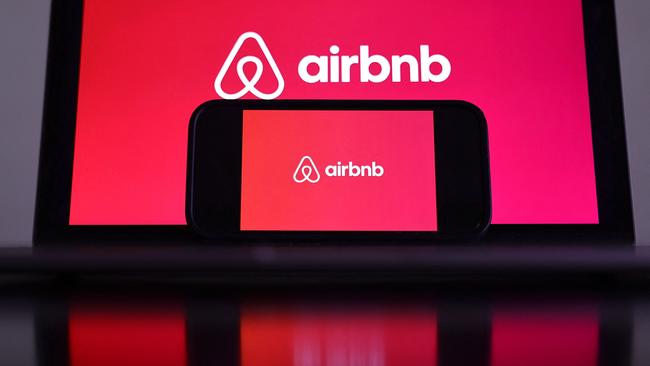Airbnb announced big change to hit Australian users in coming months
The holiday rental titan says it is updating its extenuating circumstances policy to make it easier to cancel and refund reservations.

Airbnb is extending its extenuating circumstances policy to “foreseeable weather events” in a move it says will make it easier to cancel and refund reservations without incurring fees and other consequences.
The $US103.61bn ($159.1bn) company has previously allowed customers to cancel bookings and be refunded for unexpected events like natural disasters and government travel restrictions.
But now it says customers can cancel bookings and get their money back – even if severe weather was expected, such as a cyclone in Far North Queensland during cyclone season.
Under the old policy affected bookings for this destination would not be eligible for a refund.
Airbnb head of community policy Juniper Downs said the rule changes – which have been renamed the “major disruptive events policy” – were in line with industry standards.
“The changes to this policy, including its new name, were made to create clarity for our guests and Hosts and ensure it’s meeting the diverse needs of our global community,” Ms Downs said.
“Our aim was to clearly explain when the policy applies to a reservation, and to deliver fair and consistent outcomes for our users.”
It is part of a raft of changes Airbnb has made in the past year, including the removal of 100,000 low-quality listings, which it said had reduced host cancellations by more than 30 per cent since April, 2023.
Airbnb also announced it was in the process of verifying 1.5 million listings across US, Canada, Australia, UK and France, with badges soon visible on these listings. “We’ll soon introduce new tools — including photo and video authentication — for more Hosts in those countries to verify their homes and, starting this September, we’ll launch listing verification in 30 additional countries,” Airbnb said.
The company also announced last month that it was banning security cameras inside guest homes to bolster guest privacy.
It comes as Anthony Albanese has flagged a potential crackdown on tax breaks claimed by landlords using Airbnb, after concerns were raised that homeowners offering short-term accommodation were unfairly claiming deductions for the entire year when properties are being left empty for long periods.
The Prime Minister’s comments followed former Tax Commissioner Chris Jordan suggesting before he left the role in late February that the relatively high top marginal personal income tax rate of 47 per cent encouraged people to “split income and try to get it taxed at the corporate rate, rather than the individual rate”.
“The difficulty is … how do we know what part of the year it was available for rent, or actually rented, versus the owner using it,” Mr Jordan told the National Press Club in February.
Amid a national rental shortage, the prevalence of short-term rentals has become a hot-button issue among voters, particularly in areas with a lack of affordable rentals and which are popular with visitors clamouring for holiday homes.
The Australian Taxation Office is using other sources of data to corroborate landlords’ claims, including from real estate agents, platforms such as Airbnb, and even electricity bills to see whether power was being used at a particular time.
Airbnb’s changes to the extenuating circumstances policy take effect for Australian users from June 6.
Other updates to the policy include limiting coverage to “large-scale events” at the destination location only; making it clear that mid-trip cancellations can be made to a covered event with guests receiving a refund for any nights that they didn’t stay without incurring fees or consequences; and reminding hosts that they are obligated to cancel reservations if their listing is inhabitable or no-longer as described in the original listing.
“As this cancellation and refund policy is not designed to apply to all types of unexpected issues and emergencies that can impact a trip, guests should consider purchasing travel insurance,” Airbnb said in a statement.




To join the conversation, please log in. Don't have an account? Register
Join the conversation, you are commenting as Logout